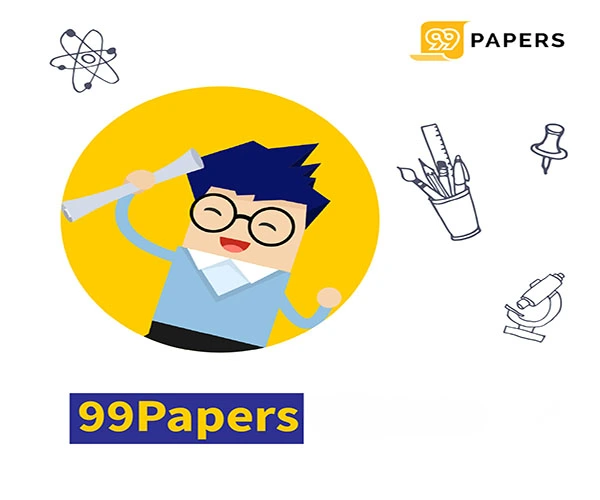Embarking on the journey of writing your dissertation can be both an exhilarating and daunting experience. As you delve into this critical phase of your academic career, the pressure to produce a high-quality document that showcases your research and analytical skills can feel overwhelming. Whether you are a seasoned writer or just beginning to navigate the complexities of academic writing, understanding the nuances of how to write a dissertation is essential for your success. We will explore various strategies to streamline the writing process, ensuring that you can deliver a compelling and well-structured dissertation that stands out.
Once you've grasped the fundamentals of dissertation writing, you might find yourself seeking assistance from various platforms dedicated to academic support. Services like EssayPro, PaperHelp, and ExtraEssay have emerged as valuable resources for students looking to refine their writing skills or gain insights into effective dissertation strategies. Whether you need help brainstorming ideas, structuring your dissertation, or polishing your final draft, these platforms can provide the guidance you need to succeed.
Throughout this article, we will share tips, techniques, and best practices for writing your dissertation that will not only help you stay organized but also inspire creativity and critical thinking. By the end of this guide, you will be equipped with the tools necessary to confidently approach your dissertation writing process and ultimately write a dissertation that reflects your hard work and dedication.
Writing Your Dissertation: A Comprehensive Guide
Writing a dissertation is a significant milestone in your academic journey. It requires extensive research, critical thinking, and excellent writing skills. For many students, the process can be overwhelming. With proper planning and organization, you can navigate through this challenging task with ease. Resources like essaypro and extraessay can provide the support you need to succeed.
Whether you are writing your dissertation for the first time or looking for tips to improve your skills, understanding the fundamental steps is crucial. Utilizing services such as paperhelp can also help you in managing your workload and staying on track. Let's explore the essential components involved in writing a dissertation.
Essential Steps in Writing Your Dissertation
- Choose a Topic: Selecting the right topic is the first step in writing a dissertation. It should be relevant, interesting, and researchable.
- Conduct a Literature Review: Familiarize yourself with existing research by reviewing academic papers related to your topic.
- Develop a Research Proposal: This document outlines your intended research, objectives, and methodology.
- Write a Dissertation Outline: Organize your thoughts and create an outline to guide your writing process.
- Data Collection and Analysis: Collect and analyze data to support your findings and arguments.
- Write the Dissertation: Begin drafting each section, ensuring clarity and coherence throughout your work.
- Edit and Revise: Take the time to review your dissertation for grammatical errors, clarity, and adherence to guidelines.
For those who feel overwhelmed by this process, "Writing a Dissertation for Dummies" offers a straightforward approach to tackling the complexities involved. Seeking help and guidance during this process can significantly ease your workload and enhance your dissertation's quality. Don't hesitate to reach out for support when needed, and make use of available resources like essaypro, extraessay, and paperhelp to ensure you write a dissertation that stands out.
Understanding the Purpose of Your Dissertation
When embarking on the journey of writing your dissertation, it is essential to grasp its fundamental purpose. A dissertation is more than just a lengthy paper; it is an opportunity to showcase your research skills, critical thinking, and ability to contribute original knowledge to your field. Many students often look for resources, such as "writing a dissertation for dummies," to simplify the process and gain clarity on their objectives.
Your dissertation represents a culmination of years of study, and understanding its purpose can guide you in crafting a compelling argument and effective structure. Whether you seek assistance from platforms like paperhelp or extraessay, the goal remains the same: to write a dissertation that reflects your insights and research abilities.
Key Objectives of a Dissertation
- Demonstrate Research Ability: Your dissertation should illustrate your ability to conduct thorough research and analyze complex information effectively.
- Contribute to Your Field: Aim to provide original contributions that advance knowledge in your discipline.
- Showcase Critical Thinking: Engage with existing literature critically, identifying gaps your research addresses.
- Develop Writing Skills: Writing your dissertation enhances your ability to communicate complex ideas clearly and concisely.
Understanding the purpose of your dissertation is crucial for success in this academic endeavor. By focusing on these objectives and seeking help when needed, you can effectively write a dissertation that stands as a testament to your academic journey.
Choosing the Right Topic for Your Dissertation
Choosing the right topic for your dissertation is one of the most critical steps in the writing process. A well-chosen topic not only fuels your passion but also sets the foundation for a successful dissertation. In this journey of writing your dissertation, you will often find yourself questioning various aspects of your chosen field. Ensuring that your topic is both relevant and manageable is essential.
When starting to write a dissertation, consider your interests and long-term goals. This will help guide your focus and make the writing process more enjoyable. Research the existing literature to ensure that your topic hasn’t been extensively covered, which could limit the originality of your work.
Tips for Selecting Your Dissertation Topic
- Identify Your Interests: Think about the subjects that excite you the most; passion can be a great motivator.
- Consult Your Advisor: Seek advice from your dissertation advisor or professors, who can provide insights into current trends and gaps in research.
- Consider Feasibility: Make sure that you can access the necessary resources and data to support your research.
- Review Existing Research: Analyze existing papers and dissertations to ensure your topic adds value to the academic community.
- Use Resources: Platforms like ExtraEssay and PaperHelp can offer assistance in forming your topic and structuring your dissertation.
For those who may find the process daunting, using a guide such as Writing a Dissertation for Dummies can prove invaluable. This type of resource will help streamline the writing process and clarify any uncertainties you may have. A thoughtfully chosen topic will guide you through the arduous process of writing your dissertation and contribute meaningfully to your field of study.
Structuring Your Dissertation for Maximum Impact
Writing your dissertation can often feel like an overwhelming task, especially if you're unsure about where to start. For many students, the thought of creating a detailed and coherent structure is daunting. Understanding how to organize your work effectively can greatly enhance the clarity and impact of your research. If you're looking for guidance, you might find resources like "writing a dissertation for dummies" particularly helpful.
Your dissertation should tell a story, guiding the reader through your research and findings in a logical way. This not only aids comprehension but also helps to highlight the significance of your work. We’ll discuss essential strategies to effectively structure your dissertation.
Key Components of a Dissertation Structure
- Introduction: Set the stage for your research, presenting the problem statement, research questions, and the significance of your study.
- Literature Review: Provide a comprehensive overview of existing research and theories related to your topic, identifying gaps your dissertation will address.
- Methodology: Clearly explain the research methods you have chosen, justifying your decisions and describing how you collected and analyzed data.
- Results: Present your findings in a structured manner, using tables and figures to enhance clarity.
- Discussion: Interpret your results, discussing their implications, limitations, and how they contribute to the field.
- Summarize the key findings, suggest areas for future research, and reiterate the importance of your work.
- References: Ensure you include all sources cited throughout your dissertation, adhering to the required citation style.
When you decide to write a dissertation, it's crucial to stay organized and focused. Utilizing platforms like ExtraEssay or EssayPro for additional writing and editing support can be beneficial. They can provide you with valuable feedback, helping you refine your structure and argument.
The structure of your dissertation plays a pivotal role in its success. By adhering to a clear and logical format, you not only make your work more accessible but also highlight its significance in the broader academic discourse. The effort you put into structuring your dissertation can significantly enhance its overall impact.
Effective Research Strategies for Your Dissertation
Writing your dissertation can be one of the most challenging yet rewarding experiences in your academic journey. To successfully navigate this process, effective research strategies are essential. These strategies not only help you to gather relevant information but also allow you to structure your ideas coherently. Whether you choose to use platforms like EssayPro or ExtraEssay for assistance, having a clear research plan can greatly enhance your productivity.
One of the most important aspects of writing a dissertation is developing a focused research question. This question will guide your entire project and should be specific enough to allow for thorough exploration. Start by reviewing the existing literature and identifying gaps that your research could fill. Utilizing services like PaperHelp can also provide additional insights into current trends and topics relevant to your field.
Key Research Strategies
- Literature Review: Begin with a comprehensive literature review to understand the current state of research in your area. This will help you to locate relevant studies and theoretical frameworks.
- Data Collection: Based on your research question, decide on appropriate methodologies for data collection, whether qualitative, quantitative, or a mix of both.
- Networking: Engage with other researchers in your field through conferences, seminars, or online forums. This can lead to valuable collaborations and feedback on your work.
- Time Management: Establish a timeline for your research activities to ensure you stay on track with your dissertation deadlines.
Writing your dissertation requires careful planning and effective research strategies. By utilizing various resources and maintaining an organized approach, you can make the dissertation writing process smoother. The goal is not just to complete your dissertation, but to contribute meaningful knowledge to your field.
Tips for Writing and Editing Your Dissertation
Writing a dissertation can be a daunting task, but with the right approach, it can also be a rewarding experience. Utilizing resources like EssayPro and PaperHelp can make the process smoother, especially if you're feeling overwhelmed. For beginners, the guide "Writing a Dissertation for Dummies" provides a solid foundation on what to expect during this journey.
To ensure that your dissertation stands out, focus on a clear structure, sound research, and thorough editing. Here are some essential tips to help you write and edit effectively:
Key Strategies for Effective Dissertation Writing
- Outline Your Dissertation: Create a detailed outline that includes chapters, sections, and key arguments you want to address.
- Set a Writing Schedule: Allocate specific times for writing each day to maintain momentum and avoid procrastination.
- Use Resources: Consider platforms like ExtraEssay for professional writing assistance and tips.
- Regularly Review Your Work: Schedule periodic reviews to assess your progress and make necessary adjustments.
- Seek Feedback: Share drafts with peers or advisors who can provide constructive feedback on your writing.
Once you complete your first draft, editing becomes critical. Here are some editing tips:
- Take Breaks: Step away from your dissertation for a short time before editing to return with fresh eyes.
- Read Aloud: This helps catch awkward phrasing and unclear sentences.
- Check Citations: Ensure that all references are correctly cited according to your field's standard.
- Use Editing Tools: Consider online tools to help with grammar and style corrections.
By following these tips and utilizing available resources, you can enhance your dissertation writing and editing process significantly. Persistence and patience are essential as you embark on this academic endeavor!
Successfully Submitting and Defending Your Dissertation
Completing your dissertation is a monumental achievement, but the journey doesn't end with writing. Successfully submitting and defending your dissertation is the final step in showcasing your hard work, dedication, and research capabilities. It's important to approach this stage with the same rigor and commitment you've applied throughout your research process. With the right strategies, you can navigate this final hurdle confidently.
As you prepare for submission and defense, consider utilizing resources such as ExtraEssay and EssayPro to refine your final draft. If you're feeling overwhelmed, platforms like PaperHelp provide additional assistance in editing and reviewing your work. And for those who might be seeking foundational knowledge, exploring guides like Writing a Dissertation for Dummies can offer invaluable tips and insights. It's not just about writing a dissertation; it's about successfully presenting it.
Key Steps to Success
- Understand Your Institution's Submission Guidelines: Ensure you are familiar with the formatting and administrative requirements specific to your institution.
- Prepare for Your Defense: Create a compelling presentation that highlights your research findings and methodology.
- Engage with Your Committee: Be ready to answer questions and discuss your work in detail, showcasing your expertise.
- Practice Makes Perfect: Conduct mock defenses with peers or advisors to build confidence and receive feedback.
- Stay Positive and Professional: Approach your defense as a collaborative discussion rather than a strict examination.
By utilizing resources like ExtraEssay, PaperHelp, and insights from Writing a Dissertation for Dummies, you can enhance your preparation for submission and defense. Focus on presenting your research effectively, engaging with your committee, and maintaining a positive mindset throughout the process. With these strategies in mind, you are well on your way to successfully defending your dissertation and embarking on your next professional chapter.









